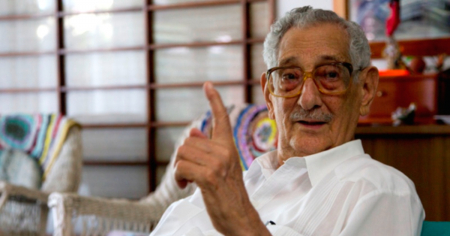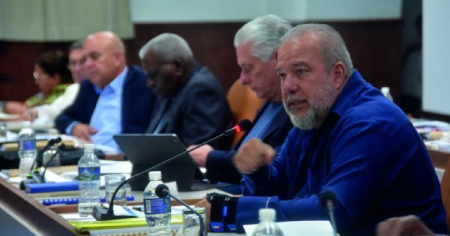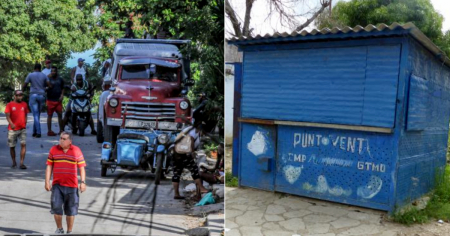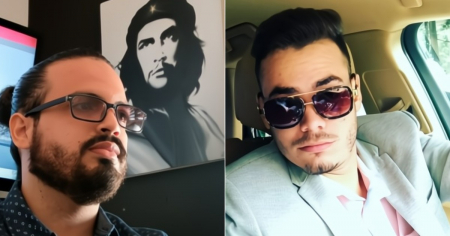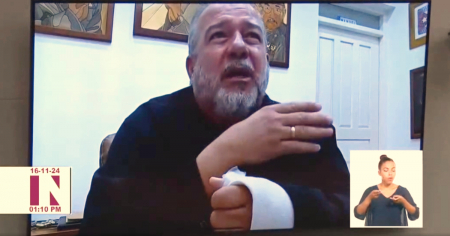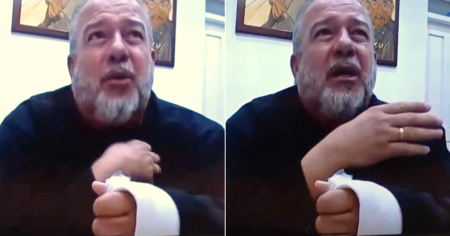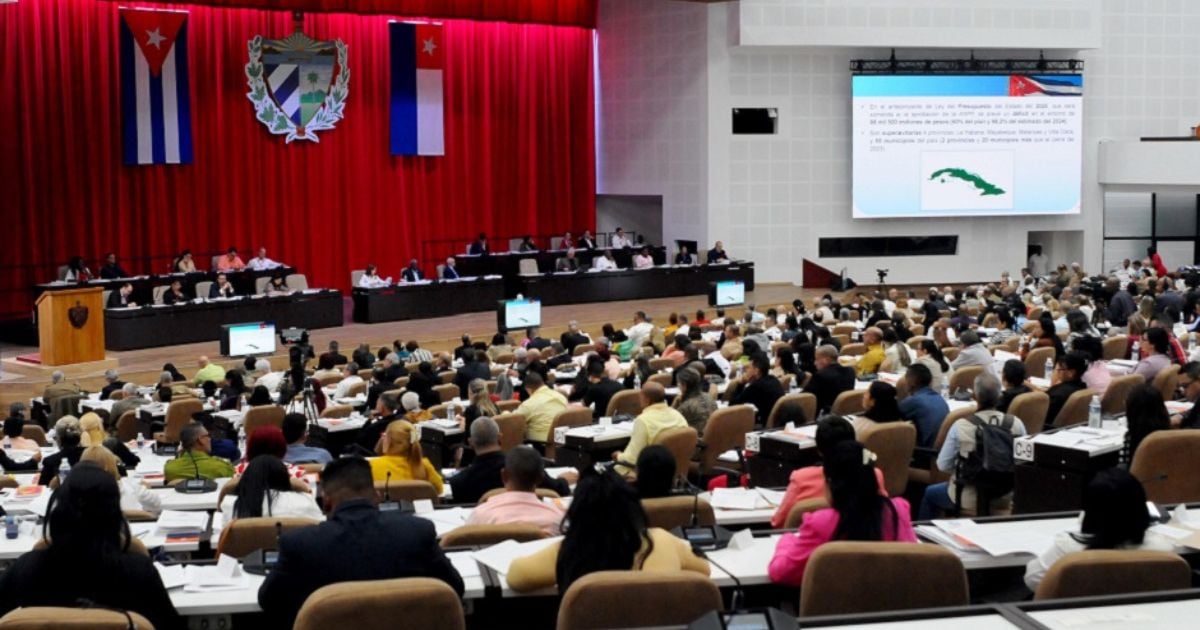
Related videos:
The Cuban regime, represented by Prime Minister Manuel Marrero Cruz, has outlined its priorities for 2025, focusing on strengthening political-ideological work, defense, and internal order, as stated during the Fourth Ordinary Session of the National Assembly of People’s Power in its X Legislature.
In a video broadcast by the official Canal Caribe, Marrero emphasized that strengthening political-ideological work will be the top priority for the country's leaders and all government activities.
According to the Prime Minister, this approach is vital for a "country that has been attacked and blockaded," referring to international sanctions and economic pressures.
From their perspective, the political aspect forms the foundation upon which all other actions should be built, deeming this work essential to ensure national stability and cohesion.
This speech reiterates the regime's strategy of using ideological discourse as a mechanism to address the growing social and economic tensions.
The role of the Revolutionary Armed Forces (FAR) and the Ministry of the Interior (Minint) was praised during the intervention of the member of the Political Bureau of the Party, who highlighted their contributions in areas ranging from national defense to social and productive work.
"Hurricanes, there are the Armed Forces and the Minint. Earthquake, there are the Armed Forces and the Minint. Need to pick up trash, there are the Armed Forces and the Minint," Marrero emphasized, making it clear that these institutions are seen as a fundamental support for the regime in times of crisis.
Additionally, he acknowledged his role in preserving the "tranquility and sovereignty" of the country, as well as in the alleged promotion of economic and social development, subtly revealing his repressive function.
Among the projections for 2025, the Prime Minister outlined a series of economic measures that include the recovery of the national electricity system, the implementation of a new mechanism for the allocation and management of foreign exchange, and the resizing of the currency market.
Initiatives were also mentioned to increase domestic production, with a particular focus on food, and to make progress in the refinement of the socialist state enterprise.
However, the government continues to bet on a "partial dualization of the economy," suggesting a greater segmentation between the state and non-state sectors, as well as tighter control over foreign currency.
On the other hand, the importance of preventing and addressing crimes, corruption, illegal activities, and issues of social discipline was emphasized. These topics have become increasingly critical in the current context of crisis, which unofficially also includes the control of protests and manifestations of social discontent, reflecting the regime's concern for maintaining order in the face of rising public tensions.
In his speech, Marrero acknowledged the growing and pronounced social inequalities that have emerged more prominently in recent years, and he referred to the need to eradicate them, although he did not elaborate on how he plans to address these disparities beyond the regime's traditional measures.
In the social sphere, the government aims to strengthen public services and protect individuals in vulnerable situations.
Marrero mentioned that priority will be given to subsidies for individuals rather than for products, a measure aimed at aligning social policies with the country’s limited economic capabilities.
Despite these projections, Marrero acknowledged that the results obtained so far have not met expectations: "The anticipated impacts have not been achieved," he admitted, noting that the economy shows no signs of recovery and predicting a decline by the end of the year.
Nevertheless, he expressed confidence that learning from mistakes and the accumulated experience will lead to a stage with better results.
The prime minister also attributed the economic problems to what he described as an "intensification of the global economic and financial crisis," coupled with the tightening of the embargo and international sanctions.
Looking ahead to 2025, Marrero warned of a more challenging scenario, marked by a worsening of sanctions and an increase in social media attacks that, according to him, aim to "fragment the unity of the people."
Despite this outlook, the prime minister concluded his speech with a call for optimism, citing examples of historical leaders of the Cuban revolution and emphasizing the need to maintain faith in victory.
Marrero's speech, while filled with slogans and promises, reveals a significant uncertainty about the regime's actual ability to implement these priorities and bring about meaningful change in the lives of Cubans.
The insistence on ideology as the foundation of everything contrasts with the growing public dissatisfaction in the face of an economic crisis that continues to deepen, with no clear signs of resolution in sight.
Frequently Asked Questions about the Cuban Regime's Priorities for 2025
What are the main priorities of the Cuban regime for 2025?
The main priorities of the Cuban regime for 2025 are to strengthen political-ideological work, defense, and internal order. These priorities were highlighted by Prime Minister Manuel Marrero Cruz during the Fourth Ordinary Session of the National Assembly of People’s Power. The strategy aims to ensure national stability and cohesion amid international sanctions and economic pressures. Additionally, there are plans to reshape the foreign exchange market and increase domestic production, particularly in food.
How does the Cuban government plan to address the energy crisis in 2025?
The Cuban government plans to address the energy crisis by rehabilitating the national electric grid and increasing the production of renewable energy. It is expected to contribute 900 MW from photovoltaic energy and other renewable sources. However, the current situation remains critical due to the lack of fuel and the deterioration of the electrical infrastructure, which has resulted in prolonged outages.
What economic measures has the regime proposed to improve the situation in Cuba?
The Cuban regime has proposed measures such as resizing the currency exchange market, partial dualization of the economy, and prioritizing subsidies for individuals rather than products. Additionally, there is a push to implement a new mechanism for the allocation and management of foreign currency, increase national production, and improve the socialist state enterprise. However, these measures have had a limited impact so far, and social discontent continues to grow due to the lack of effective solutions.
How is the economic crisis affecting the Cuban population?
The economic crisis is severely impacting the Cuban population. Inflation and shortages have left many families without access to essential goods and services. The economy is facing setbacks in key sectors such as agro-industry and construction, exacerbated by a deficit in electricity generation capacity and fuel shortages. This has led to prolonged blackouts and an increase in social discontent.
Filed under:

